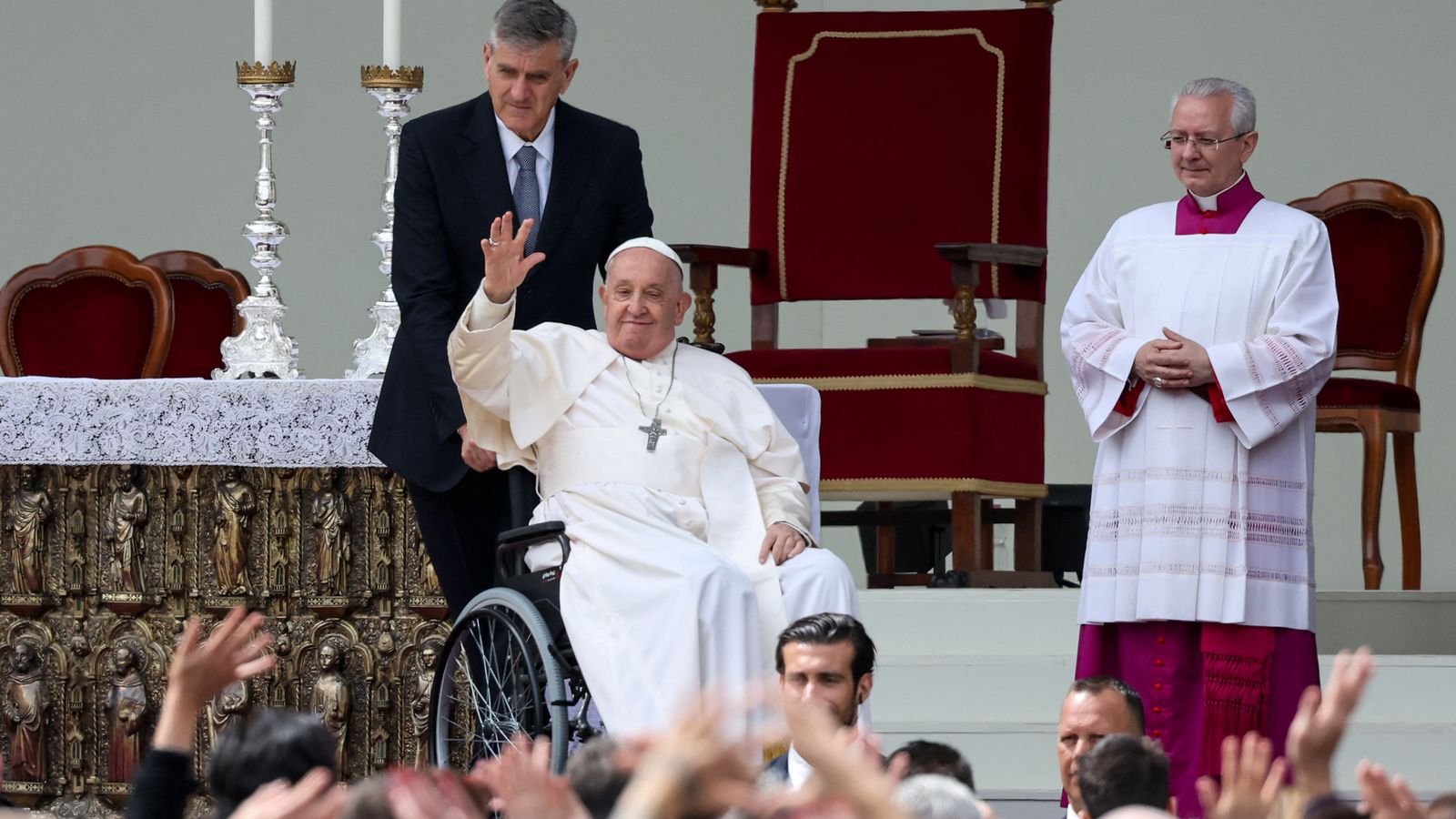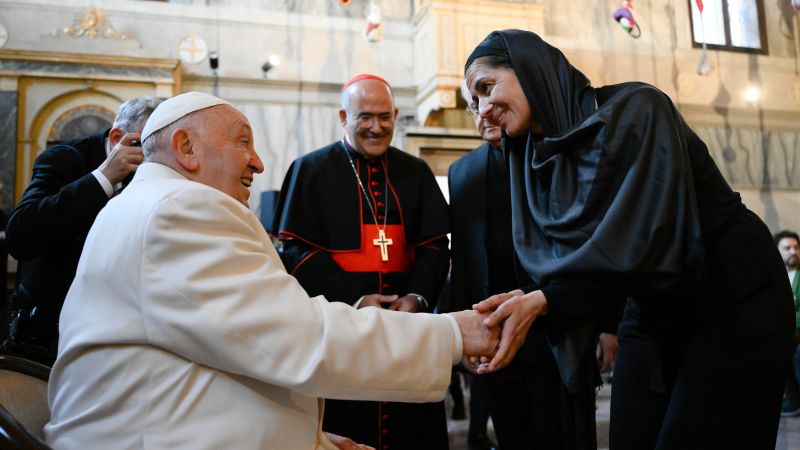Pope Francis's recent visit to Venice, Italy was not just a cultural pilgrimage but also an opportunity to address society's marginalized members. On April 28, 2024, the Pope made history as the first pontiff to attend the Venice Biennale contemporary art exhibition. However, his itinerary included a visit to a women's prison on Giudecca Island where he met with inmates and encouraged them to use their time behind bars for moral and material rebirth.
The Holy See pavilion at the biennale showcased works from several female artists, addressing issues such as racism, xenophobia, ecological imbalance, fear of the poor, and inequality. The Pope's visit to this unique exhibition site was a testament to his long-standing commitment to uplifting marginalized communities.
The women inmates at the prison were given a special role as guides for the show titled 'With My Eyes.' During his visit, Francis told them that they had a 'special place in his heart.' The Vatican's decision to mount its exhibit in Venice's women's prison marked the first time such a facility had been selected as an exhibition site for the prestigious international art show.
The Pope emphasized the importance of offering detainees tools and room for growth, creating conditions for healthy reintegration. He also acknowledged that implementing this project in a prison setting was complex due to its unique challenges. Bruno Racine, co-curator of the Vatican Pavilion, mentioned that the project's execution was more complicated than usual due to its unusual location.
The Venice Biennale has been known for showcasing art in unconventional spaces like deconsecrated churches and former beer factories. However, this was the first time a prison had been selected as an exhibition site. The setting was consistent with Francis's message of inclusivity toward marginalized people.
The Vatican project received overwhelmingly positive public reception but also raised ethical concerns regarding the intersection of powerful institutions like the Vatican and the Biennale with limited autonomy of imprisoned women. Some critics demanded that the pope request pardons or reduced sentences for any women who were incarcerated because they had responded violently to domestic abuse.
Despite these controversies, Francis's visit to Venice marked a significant moment in his papacy and demonstrated his unwavering commitment to promoting social justice and uplifting marginalized communities.




